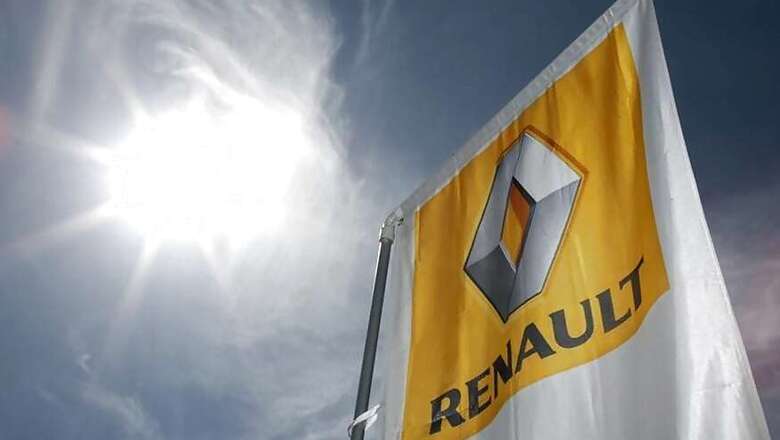
views
Renault faces a criminal probe in France after the country's consumer fraud agency passed a file to prosecutors detailing suspicions its engines had broken emissions laws, the government said, sending the carmaker's shares lower on Thursday.
The industry ministry said late on Wednesday the DGCCRF consumer fraud agency had sent prosecutors the findings of its inquiry into possible emissions test manipulations by Renault, opened in the wake of Volkswagen's diesel emissions scandal.
"It is now up to the courts to determine what further action to take over the suspected breaches," the government said in a statement. Officials at the prosecutor's office in Nanterre, west of Paris, were not available for comment.
Renault shares fell as much as 4.6 percent before recovering to 73.75 euros at 1100 GMT, still 2.2 percent below their closing price on Wednesday, before the announcement.
Renault said in a short statement its engines complied with European law. Neither the company nor government would describe the focus of the DGCCRF investigation when contacted by Reuters.
Besides Volkswagen (VW), Renault is the only carmaker so far to be referred for possible criminal investigation in France over suspected breaches of emissions rules.
Following VW's exposure for using software to cheat U.S. tests, Renault and others have attracted scrutiny for their own use of "defeat devices" that reduce the effectiveness of technology to purge toxic nitrogen oxides (NOx) from exhaust.
Such devices are calibrated to meet pollution standards during regulatory tests but not in many other conditions encountered on the road, when real emissions are allowed to soar. They are illegal except when deemed necessary to protect the engine - a European loophole that has been widely exploited.
Carmakers including Renault, Opel and Fiat told a separate French investigating committee earlier this year that defeat devices in their vehicles were legal under the exemption. But the panel concluded their technical justifications "remained to be proven".
Renault had explained the NOx-cutting exhaust gas recirculation (EGR) in its top-selling diesel engines had been found to cause serious turbo clogging problems.
Engineers responded by programming the EGR to shut down outside a narrow "thermal window" of air intake temperatures, 17-35 degrees Celsius (63-95 degrees Fahrenheit). While passing regulatory tests carried out at room temperature over short periods, the protocol sends NOx emissions sky-high on the road.
The findings sent to prosecutors include material seized during police searches at Renault sites, interviews with company officials and results of independent testing carried out on Renault vehicles, an official with knowledge of the investigation said. The searches were reported in January.
"It's certainly not good for the manufacturer and may reinforce views that apart from electric vehicles, they need to increase capital expenditure and R&D," Barclays analyst Kristina Church said on Thursday.
"We presume the big debate will again be around what manufacturers have been calling the thermal window."
Research and development costs increased by 115 million euros in the first half of the year, partly as a result of "diesel consequences", Renault said in July. Chief Financial Officer Clotilde Delbos also said last month her full-year cost savings goal faced some challenges.
Prosecutors are now expected to carry out their own preliminary inquiry to decide whether to order a formal probe under an investigating judge, which can lead to a full trial.
Other unidentified carmakers remain under investigation by the DGCCRF agency, the government said in its statement.



















Comments
0 comment